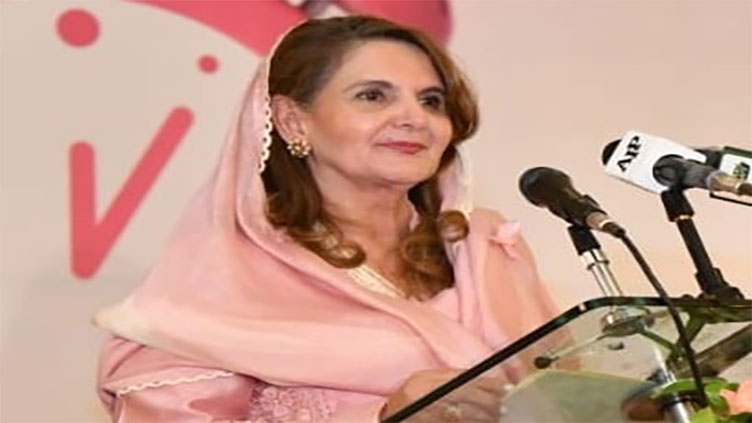Samina Alvi urges self-examination to combat breast cancer mortality

Pakistan
Samina Alvi urges self-examination to combat breast cancer mortality
RAWALPINDI (APP) - Begum Samina Alvi, the spouse of President Dr Arif Alvi, on Monday said a five-minute self-examination every month could help detect breast cancer at an early stage.
Samina, during an awareness seminar on breast cancer here at Behbud Association of Pakistan, said that the revelation of 44,000 deaths due to breast cancer in Pakistan annually was an alarming situation that called for raising constant awareness about early diagnosis of the disease.
She stressed the need to sensitise the general public about shunning the taboo about breast cancer.
Samina mentioned that the world overall had a 98 percent recovery rate from breast cancer, but regretted that in Pakistan, insufficient mammographic facilities usually led to a high mortality rate due to the detection of malignancy at a later stage.
She said women of all ages, including teenage girls between 12 and 14 years, were also being diagnosed with breast cancer. She urged the women to learn the five-minute routine of self-examination and spread the word among at least 20 other women folks in their circle.
Samina Alvi, on the occasion, announced a donation of Rs0.5 million for the Behbud Mother and Child Hospital on behalf of her family.
She also emphasised the need to focus on the inclusiveness of persons with disabilities and mental health and ensuring a harassment-free environment for women.
She called for accommodating the differently-abled persons with facilities of education and employment and mainstreaming them in society.
Expressing similar views, Lt-Gen (r) Nigar Johar, the country’s first three-star woman general in the Pakistan Army who belonged to the Army Medical Corps, said one in eight women died of breast cancer in the world which was a scary figure.
She said the health services of Pakistan were focused on reducing breast cancer mortality by 25 percent as per the global health goal of the World Health Organization (WHO).
Nigar highlighted that at the government level, there was an improvement in diagnostic modalities, including radiography, mammography and gene mutation testing. She, however, stressed the involvement of lady health workers in effective dissemination of the message among women residing in every nook and corner of the country.
A panel discussion of doctors, psychologists and a survivor of breast cancer highlighted the significance of early diagnosis and dealing with the challenges of mental trauma faced by patients and their families.


